RIYADH: An exhibition of rare watches in Riyadh that brought together 165 timepieces from prestigious brands is the start of a “long-term relationship” with the Kingdom’s watch collector community, according to the UK auction house, Phillips.
Collectors and enthusiasts visited the gallery, organized by Saudi Arabia's Fashion Commission, at Tuwaiq Palace.
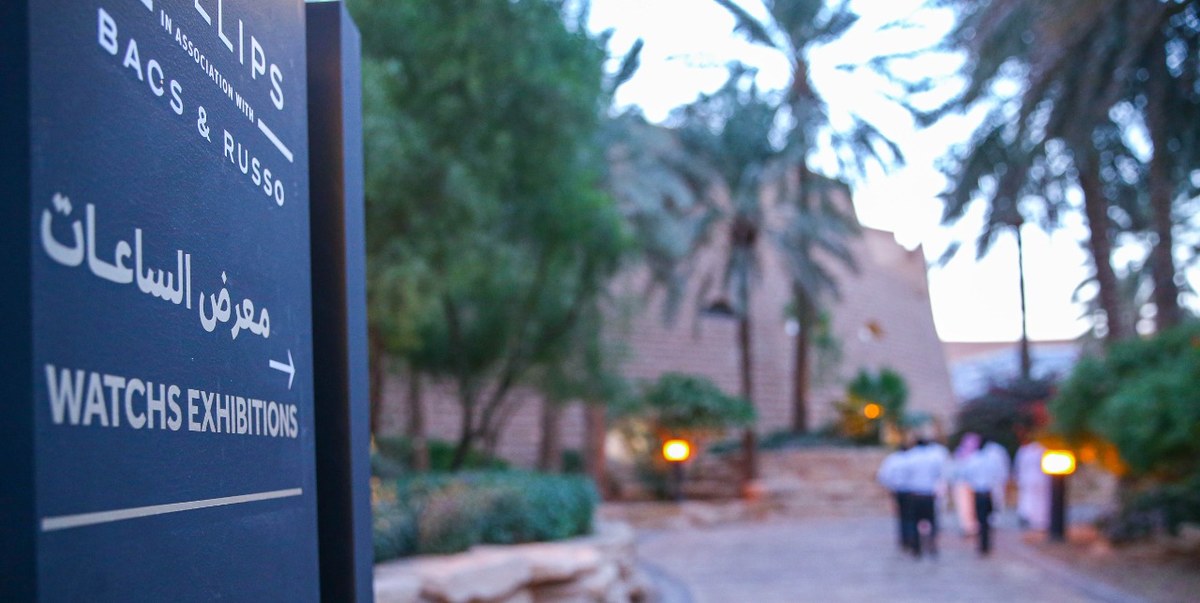
Tuwaiq Palace in Riyadh, Saudi Arabia hosts government functions, state receptions, and cultural festivals that introduce Saudi arts and customs to the international community, built in 1985 by OHO Joint Venture. (AN Photo/Saad Aldossari)
The event, which started last Thursday and ran for three days, is one leg in an international tour for Phillips in Association with Bacs & Russo, the watches department of the British auction house.
Paul Boutros, Head of Watches, Americas for Phillips, said: “The Fashion Commission invited Phillips to collaborate on this event for the first time and we were absolutely thrilled. We hope this is the start of a long-term relationship where we can show the Saudi Arabia watch collector community the watches we have.”
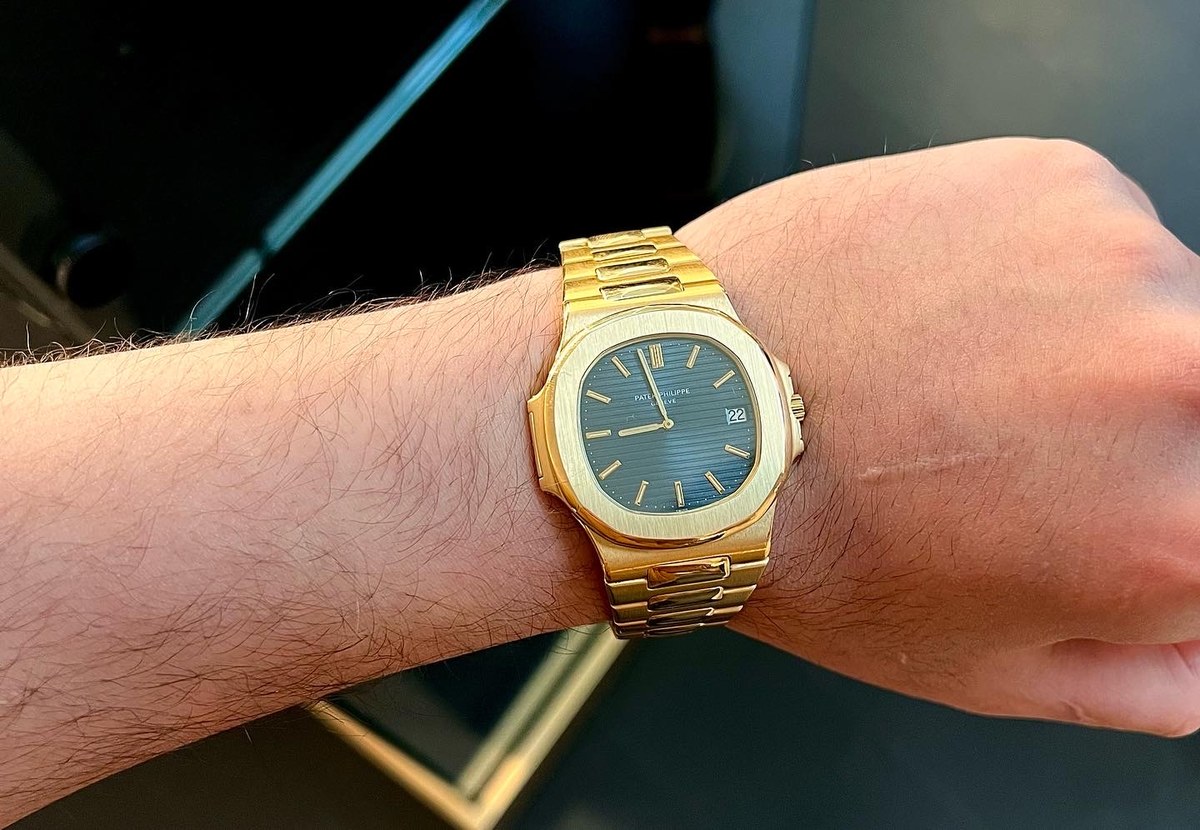
Lot 110: Patek Philippe Nautilus Ref. 3700/1 from 1978, estimate: $100,000 - 200,000. (AN Photo/Zaid Khashogji)
The watches will be auctioned in New York next month. Brands at the Riyadh exhibition included Rolex, F.P. Journe, Richard Mille, Patek Philippe, and Audemars Piguet.
One of the highlights showcased at Tuwaiq Palace was a George Daniels pocket watch.
Daniels, an English horologist famed for creating a watch mechanism called the coaxial escapement, is known in the watch collector community as the father of independent brands, Boutros explained.
This modern escapement mechanism, hand-manufactured by Daniels, has been used by Swiss watchmaker Omega in most of its collections since 1999 and is considered the first innovation in escapements in 250 years.
Daniels only ever made 28 watches in his lifetime, which speaks to the rarity of the timepiece on offer.
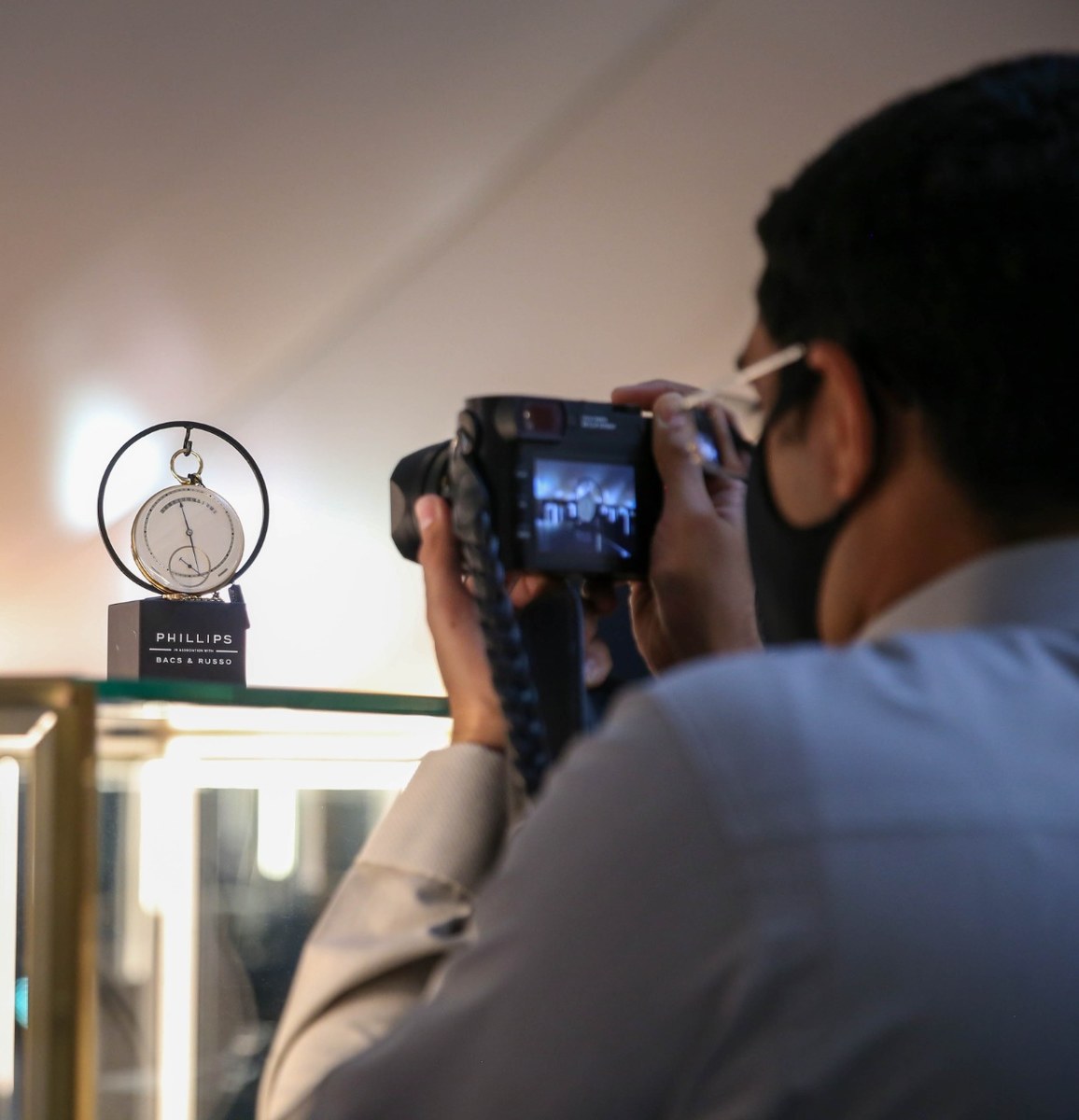
Lot 102: George Daniels pocketwatch, handmade by Edward Hornby in 1971 with an estimate of $600,000 - 1,200,000. (AN Photo/Saad Aldossari)
The one on display was the fourth he made. “A one-minute tourbillon fitted with a chronometer escapement that makes it a really great precision timekeeper,” Boutros said.
It is being offered for auction with an estimate of $600,000 to $1.2 million.
Boutros shared his passion for watch collecting with Arab News, as well as sharing insights into what made the watches on display in Riyadh so special.
He discovered his love for watches aged 10, when he and his father were walking back from a coin show and happened upon a watch boutique on Fifth Avenue in New York.
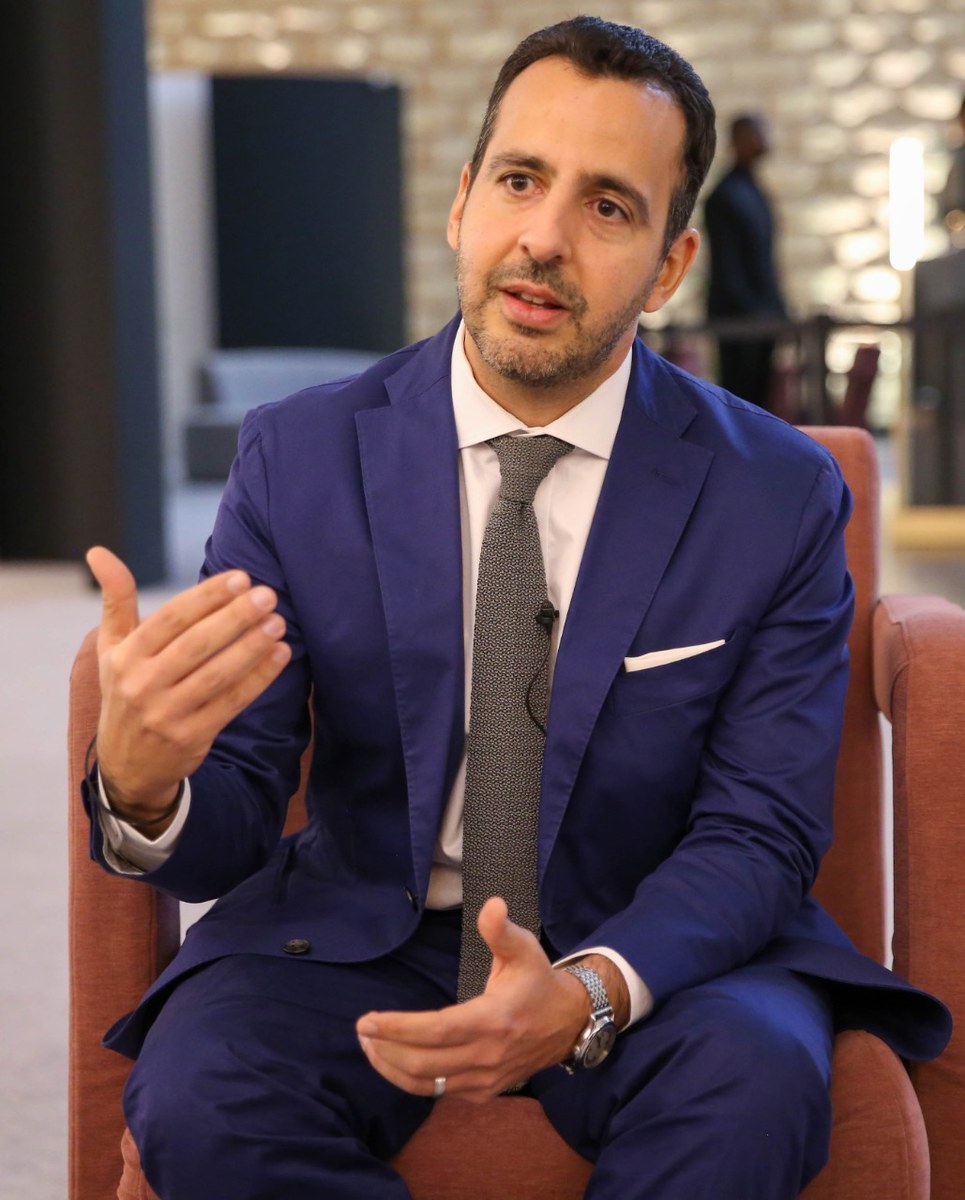
Paul Boutros, Head of Watches, Americas for Phillips. (AN Photo/Saad Aldossari)
“A sales lady invited us to come inside, she brought a pocket watch and opened up the caseback to show me the movement inside. Under the halogen lights in this warm, inviting atmosphere it was love at first sight,” he said. “As I saw the balance wheel ticking, the jewels of the movement, the gold bridges shining under the light, I had to learn as much as I can from that moment.
“Our mission is to open as many people's eyes to the greatness of collectors’ watches. We have received so much joy and happiness in our lives from timepieces and we love to share that joy with others.”
This month Phillips held the Geneva Watch Auction XIV sale, showing 250 lots. Even with the pandemic, a world record for the highest auction result in history was shattered when 250 watches sold for a total of nearly $75 million, almost doubling the previous record set at a previous auction.
“We are all crazy about watches. We're passionate for them. Most of us were of different professions and chased our passion, quitting our careers to join this world of watches because we love them so much.”
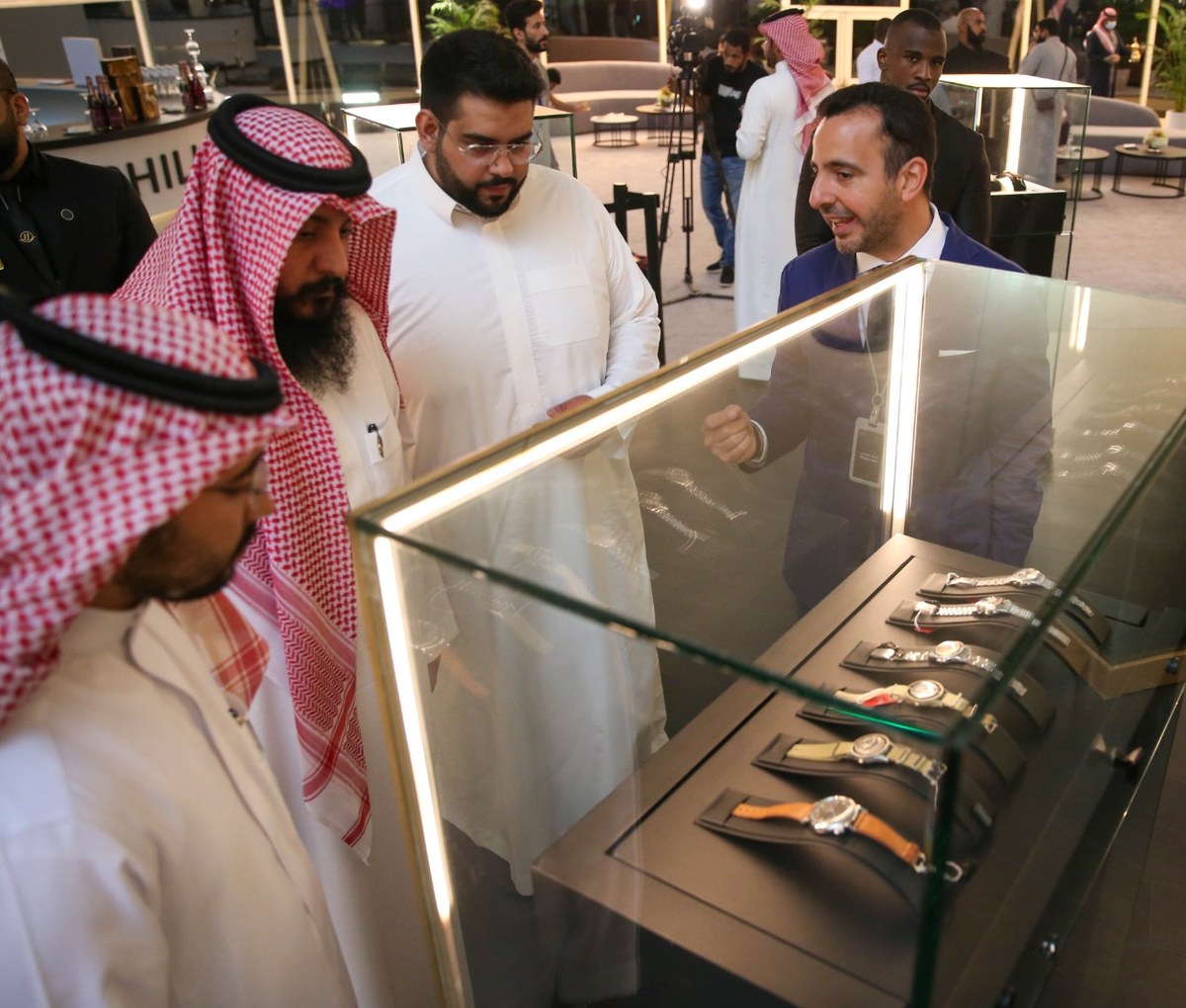
Paul Boutros, Head of Watches, Americas for Phillips, talking with local clientele about some of the watches on display for the upcoming auction in New York. (AN Photo/Saad Aldossari)
Boutros said Phillips’ ethos in selecting watches was centered around their team of passionate watch collectors, who only chose watches for auction that they themselves would buy.
“It's not about the transaction, it's about making people happy with timepieces, we have a very, very high selection criteria in what we choose. So we reject 80 to 90 percent of the watches proposed to us because they don't meet our quality thresholds.”
He called this a “collector mentality” that ensured people were happy with the timepieces offered.
“We do things very differently, we follow our own path, we don't look at what our competitors are doing. We do what we feel is right for the collector community, for our clients. And, as I mentioned, we are very passionate for watches.”
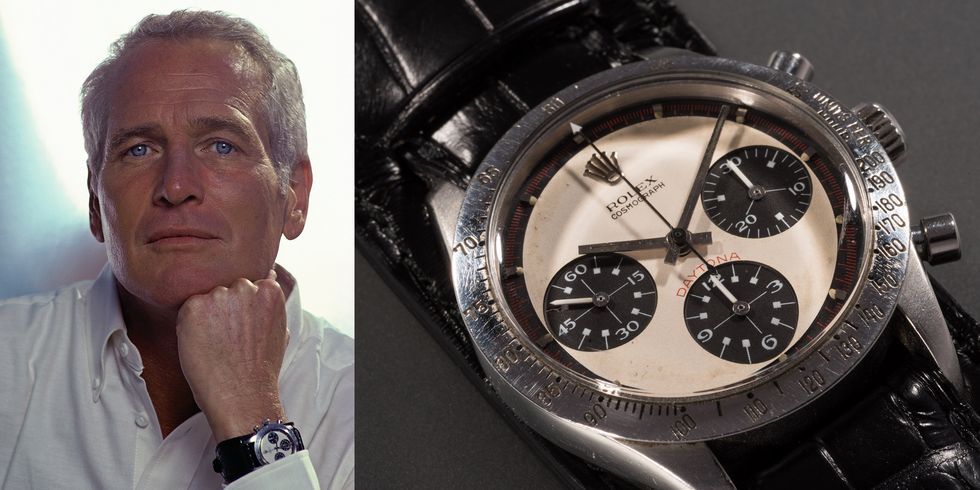
Paul Newman's Rolex Daytona gifted to him by his wife around 1968 and sold for $17.8 million in a Phillips auction in 2017. (File/Getty Images)
Their inaugural watch auction, “Winning Icons” in 2017, saw the world-record sale at the time of $17.8 million for a vintage Rolex Daytona worn by actor and race car driver Paul Newman. It was gifted to him by his wife Joanne Woodward, around 1968, as he was falling in love with motorsports.
“That really started it all,” Boutros said. “As we know Riyadh has a large percentage of collectors who are passionate for watches, but perhaps they haven't been exposed to the types of watches we offer at auction. The enthusiasm, the passion, the number of serious collectors we encountered, makes us really eager to do more here.
"With the help of the Fashion Commission and with the help of the collector community here, we definitely look forward to continuing the collaborations and doing more events here for the foreseeable future.”




















